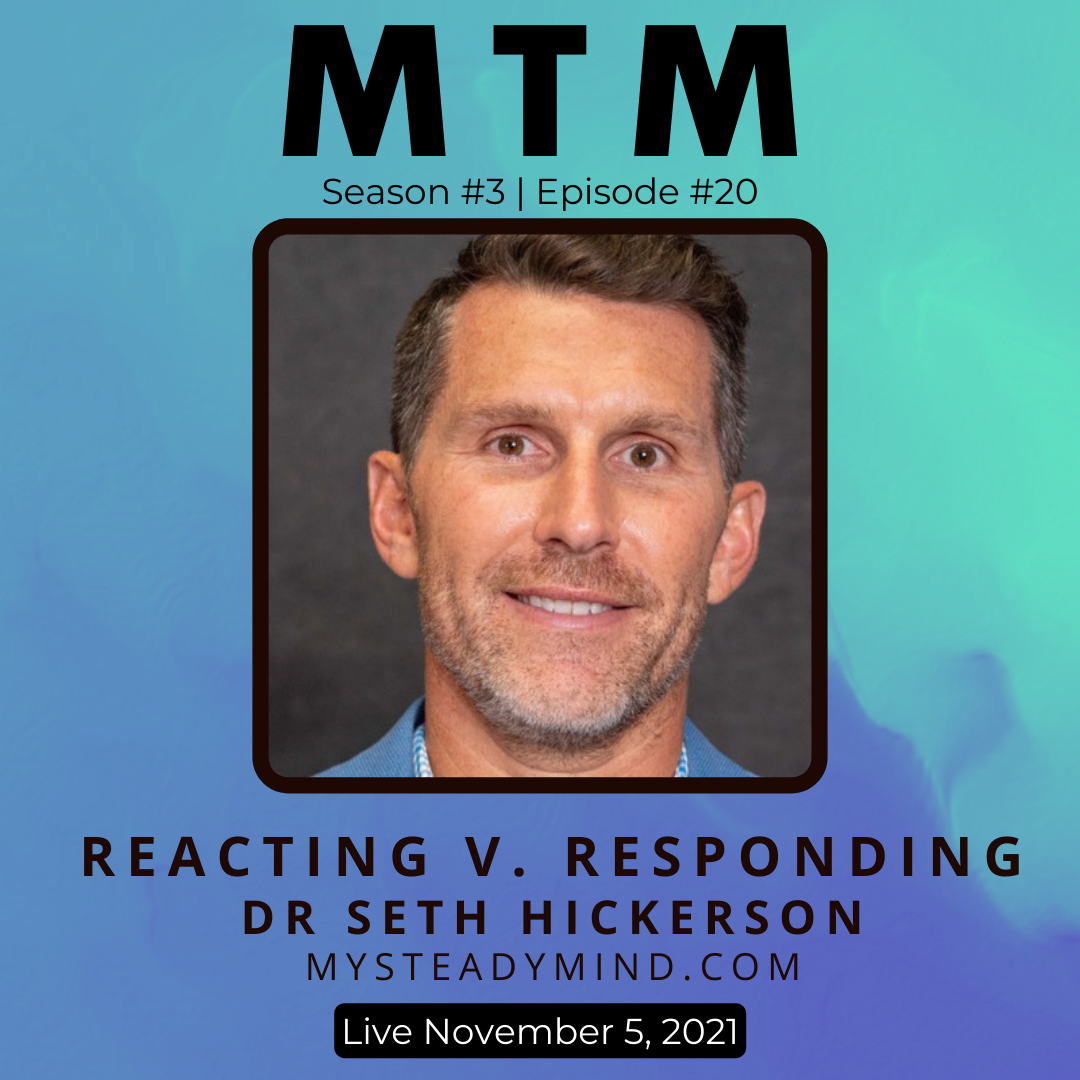
Top 15
Episodes
Pain: It's Not What You Think!
w/ Dr. Lorimer Moseley
In the podcast episode, Dr. Lorimer Moseley discusses the role of the brain in pain perception and how it can be influenced by various factors. He explains that pain is a protective mechanism orchestrated by the brain to ensure safety, and that it can be influenced by past experiences, beliefs, and the environment. By understanding the brain’s role in pain perception, individuals can explore strategies to retrain the brain and reduce hypersensitivity in the pain system.
Mindfulness practices and meditation can alter brain activity and promote a sense of safety and calm, which can help reduce pain perception. The episode also introduces the concepts of DIMs (evidence of danger) and SIMs (evidence of safety), which play a crucial role in pain perception and overall well-being, especially in chronic pain conditions. By addressing and reducing the perceived threat and danger signals in the brain, individuals can improve their quality of life and better manage their pain.
Season 6, Episode 11
Creating Emotional Stability
with Jay Fields
In the episode, Jay Fields introduces ABCs - Awareness, Body, and Centering - as tools for emotional stability. Awareness involves engaging the senses to focus on the present moment. Body practices reconnect individuals with their physical selves through movements like stretching or tapping. Centering techniques like deep breathing promote balance and calmness. By incorporating ABCs into daily routines, emotional regulation becomes more manageable, reducing anxiety and stress. The "4Fs" model highlights common emotional responses: Figure it out, Fix it, F*ck it, and Feel it.
Emphasizing the importance of choosing "Feel it," the episode promotes emotional intelligence and stability. The Hand Model of the Brain, illustrated through a fist, limbic system, and cortex, aids in understanding emotional regulation and decision-making. Through practices like ABCs and "Name it to Tame it," individuals can better manage overwhelming emotions and foster emotional resilience.
Season 5, Episode 3
Finding Your Purpose
In the pursuit of purpose, action is paramount, as highlighted by the hosts. Overthinking and analysis paralysis hinder progress, emphasizing the need to break free and start doing. Failures and setbacks are inevitable but serve as valuable learning opportunities, encouraging resilience and forward momentum. Consistent action, even in small steps, is key to uncovering purpose, fostering growth and opening up new possibilities. Cultivating a relationship with oneself through self-awareness and self-compassion is fundamental.
Surrounding oneself with supportive relationships, both within and outside the inner circle, provides encouragement and practical assistance on the journey towards purpose. Such relationships foster confidence, resilience, and fulfillment, nurturing an environment conducive to personal growth and purpose discovery.
Season 6, Episode 12
Marcus Aurelius Anderson:
The Gift of Adversity
Embracing adversity is pivotal in the mindfulness journey, fostering resilience and mindful action. Self-compassion, crucial in overcoming challenges, empowers individuals to navigate adversity with grace and resilience. Marcus's emphasis on self-compassion highlights its role in acknowledging struggles without judgment and fostering inner strength. Overcoming hesitation with self-compassion enables individuals to confront fears and uncertainties, seizing opportunities and building confidence.
Taking action without hesitation propels individuals forward, fostering resilience, embracing a beginner's mindset, and cultivating self-compassion. By embodying these principles, individuals can navigate challenges with courage, determination, and grace, enriching their mindfulness practice and leading a more fulfilling life.
Season 6, Episode 5
w/ former Nigerian Royal turned US Navy SEAL and Filmmaker
Remi Adeleke: Never Giving Up
Remi Adeleke's journey from adversity to success highlights perseverance and resilience. His path, from hardship in Nigeria to the U.S. military and Hollywood, showcases determination and faith. Throughout, Remi's commitment to meditation and storytelling guided his decisions and inspired change. His story emphasizes the importance of knowing one's "why" and having a deep emotional connection to goals.
By sharing his journey through books and films, Remi sparks awareness and inspires action against issues like human trafficking. Through storytelling, Remi exemplifies how personal narratives can drive positive change and foster empathy in society.
Season 5, Episode 13
The Power of Testosterone
w/ Dr. Carole Hooven
The episode explores the multifaceted influence of testosterone on male behavior, highlighting its role in shaping aggression, risk-taking, competitiveness, and emotional responses. Dr. Carol Hoeven discusses how testosterone impacts gene expression in the brain, leading to changes in neural circuitry that influence behavior, particularly in situations involving competition for mates or status.
Rough and tumble play in males, influenced by testosterone levels, serves as a crucial developmental activity that impacts social behavior and emotional responses. Additionally, the interplay between hormones like testosterone and cortisol in modulating emotions and behaviors is discussed, shedding light on the complex relationship between these hormones and human actions.
Season 6, Episode 18
ADHD and Mindfulness
with Dr. Mark Bertin
The episode highlights mindfulness as a valuable tool for individuals with ADHD to enhance self-management skills and improve overall well-being. By practicing mindfulness, individuals can develop better focus, organization, and emotional regulation, aiding in managing symptoms effectively. Self-compassion is emphasized as crucial for individuals with ADHD to counteract self-criticism and build resilience.
Parents can also benefit from mindfulness, modeling self-regulation and creating a supportive environment for children with ADHD. Consistent mindfulness practice, even for a few minutes daily, can yield significant improvements in managing ADHD symptoms and promoting well-being.
Season 6, Episode 13
Battling Imposter Syndrome
Imposter syndrome affects individuals regardless of their success, as exemplified by figures like David Bowie, Serena Williams, and Tom Hanks. Hosts Jon and Will share their own struggles with feeling inadequate, emphasizing the universal nature of imposter syndrome.
Overcoming it involves recognizing negative self-talk, practicing positive affirmations, and taking action despite feelings of inadequacy. By reframing self-doubt as an opportunity for growth and embracing humility, individuals can combat imposter feelings and recognize their true worth and potential.
Season 5, Episode 9
Intentional Living
w/ JC Glick
Living intentionally involves setting aspirational goals, aligning actions with personal vision, and fostering meaningful connections. JC Glick emphasizes the importance of deliberate actions over impulsive reactions, advocating for purposeful living in every moment. He highlights the transformative power of service and connection in fostering personal fulfillment and happiness, emphasizing the significance of aligning priorities with long-term objectives.
Glick's experience illustrates how supporting others can lead to personal growth and fulfillment, underscoring the idea that true happiness comes from serving others. By prioritizing goals and aligning priorities with objectives, individuals can lead a purposeful and intentional life focused on personal growth and success.
Season 6, Episode 17
Reaction vs Response
with Dr. Seth Hickerson
Understanding the STEA process is crucial for managing overwhelm, involving stimulus, thought, emotion, and action. By recognizing this sequence, individuals can intervene at the thought stage to influence emotional and behavioral responses consciously. External influences like media sensationalism can manipulate emotions and actions, emphasizing the need to create a gap between stimulus and thought for mindful responses.
Practical techniques such as the BAMO breath technique can help individuals center themselves before reacting to stimuli, fostering intentional reactions. Media sensationalism triggers fear and stress responses, impacting emotional well-being and decision-making. Coping strategies like mindfulness practices and biohacking techniques empower individuals to approach media content critically and mindfully, mitigating its detrimental effects on emotions and actions.
Season 3, Episode 20
Managing Overwhelm
w/ Lane Belone
Prioritizing simplicity and clarity is key to managing overwhelm effectively. Lane's analogy of starting with a small plot in a garden emphasizes beginning small and gradually expanding. Mindfulness practices help tap into the subconscious mind through the default mode network, aiding in processing information and finding solutions. By being mindful of present experiences, individuals can identify areas causing overwhelm and streamline routines.
Setting clear priorities and breaking down goals into manageable tasks is crucial for reducing stress. Mindfulness practices, such as meditation and somatic awareness, foster a deeper connection with the subconscious mind. Starting small, focusing on small wins, and gradually expanding efforts can prevent overwhelm and maintain productivity. Overall, embracing simplicity and clarity leads to a balanced and fulfilling life, allowing for growth and progress without unnecessary stress.
Season 6, Episode 16
Undoing Self Sabotage
with Dr. Robb Kelly
Self-sabotage, often rooted in childhood trauma and negative beliefs, profoundly influences behavior and self-perception. Dr. Rob Kelly emphasizes the need to address these deep-seated issues to break free from self-sabotaging patterns. By understanding the power of the mind in rewiring neural pathways, individuals can cultivate self-awareness and compassion to combat self-sabotage effectively.
Establishing routines and setting clear goals are vital strategies in overcoming self-sabotage. Dr. Rob highlights the role of routine in conquering self-destructive behaviors and reshaping neural pathways. Taking intentional action and repeating positive behaviors are crucial steps in reinforcing new thought patterns and building confidence.
The episode illustrates how a resolute mindset drives actions and shapes outcomes, citing examples like Arnold Schwarzenegger's remarkable success. By making firm decisions and setting clear intentions, individuals can harness the mind's energy to achieve significant accomplishments and personal growth.
Season 4, Episode 8
Everyman Mindfulness Pt. 2
Practicing mindfulness improves emotional regulation and patience, enhancing interactions with others. Jeff and Mark share how mindfulness helps them manage stress and react thoughtfully rather than impulsively. By integrating mindfulness into their routines, they cultivate patience and become better communicators. Their experiences highlight the transformative power of mindfulness in fostering self-awareness, empathy, and resilience.
Joining a supportive group like the "Uncommon Group" promotes personal growth and accountability. Jeff and Mark discuss how this community challenges them to strive for excellence and share their journeys openly. Through collective accountability, members motivate each other to push beyond their comfort zones and stay disciplined in their practices.
Establishing a consistent morning routine involving gratitude journaling, meditation, and physical activity sets a positive tone for the day. Both Jeff and Mark emphasize the importance of gratitude journaling to foster appreciation and positivity. Meditation helps them center themselves and approach the day with calm and focus, while physical activity boosts their energy levels and mental clarity.
Season 6, Episode 14
Stillness Speaks
(A Meditation)
The podcast episode emphasizes the importance of accepting and surrendering to the present moment, as highlighted by Eckhart Tolle's insights. Resistance to reality only leads to inner conflict, making peace found in acceptance and surrender vital.
Mindfulness practices, such as observing thoughts and deepening the breath, aid in cultivating inner calm and clarity. Letting go of perfectionism and unrealistic expectations enables individuals to adapt to life's imperfections with grace. By detaching from expectations and flowing with life's rhythm, one can find peace and clarity amidst chaos, fostering a deeper sense of well-being and contentment.















